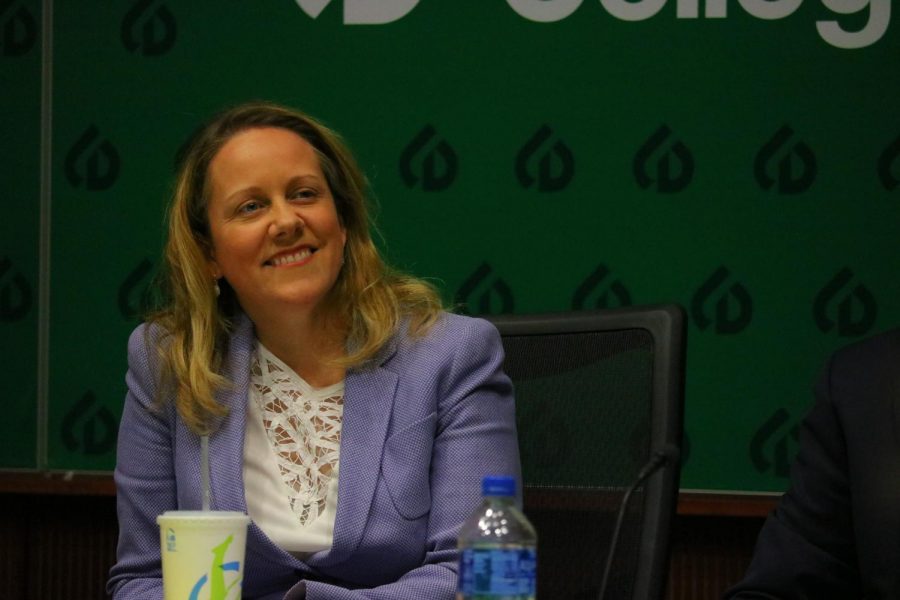Board of Trustees Vote to Increase Tuition for Online Courses
Deanne Mazzochi, COD’s Board Chairman, at a Board of Trustees meeting in April 2018
July 3, 2018
College of DuPage trustees unanimously voted to increase the cost of tuition for online classes for residents living outside of District 502 on June 21. As of Spring 2019, the pricing structure for online classes will be the same as face-to-face courses for out of district residents.
The increase comes as a result of College of DuPage joining the State Authorization Reciprocity Agreement (SARA), which allows the college to continue offering online courses to out of district residents.
Being a member of SARA costs the college $6,000 annually to be a member. There will also be extra costs for “staff resources dedicated to making sure we meet all of the federal rules and regulations around offering online courses outside the state,” said Manager of the Learning Technologies Department Susan Landers in a recent interview.
Of the change, Landers explained, “We discovered that if you take a face-to-face course, there’s stepped tuition for in-district, out-of-district and out-of-state, and for online [courses] everyone was paying the in-district rate regardless of where they lived. So we’ve just changed that.”
Effective Spring 2019, out-of-district Illinois residents will pay $323 per credit hour and non-residents of Illinois, as well as international students, will pay $393 per credit hour for online classes plus any additional fees. This is the same amount they will be paying for face-to-face classes. Presently, out-of-district and Illinois non-residents pay $136 per credit hour.
Of the increase, Landers said, “There would be an additional $3.9 million that comes to COD as a result of this increase,” if there is no change in enrollment for the year following the rise in price.
During the interview, Landers made clear in-district residents will not be affected by this change. She also said she anticipates there may be a drop in enrollment for out-of-district, out of state and international students as they’re “tripping the price” of online classes.
Pulse survey results show negative feelings towards quality of academics and faculty at COD
Vice President of Planning and Institutional Effectiveness James Bente also reported on the results of the Pulse survey. Established in 2014 and administered in that same year, 2016 and 2018, the survey was implemented to allow the college to learn what District 502 residents feel the college needs to improve on.
“A tenet that we follow with respect to the strategic planning process is to plan from the outside in. This means we must understand the perspectives and sentiments of District 502 residents,” said Bente during the meeting.
The survey saw 500 District 502 residents surveyed by telephone. Participants were asked their opinion on the college’s overall image, academic reputation, cost and value, strengths and weaknesses and how loyal they felt towards the college. Many positive results were yielded from the survey with 64% of respondents saying they felt the college has a very good image. This is a 29 percentage point improvement from 2016.
However, only 7% of respondents said they thought the quality of academics and faculty was good. To improve this statistic, which Board Chairman Deanne Mazzochi remarked she was “…a little bit disappointed about” during subsequent discussion of the survey results, Bente suggested the college might have to convene focus groups in order to ascertain why residents felt that way and what could be done to change their minds.




















